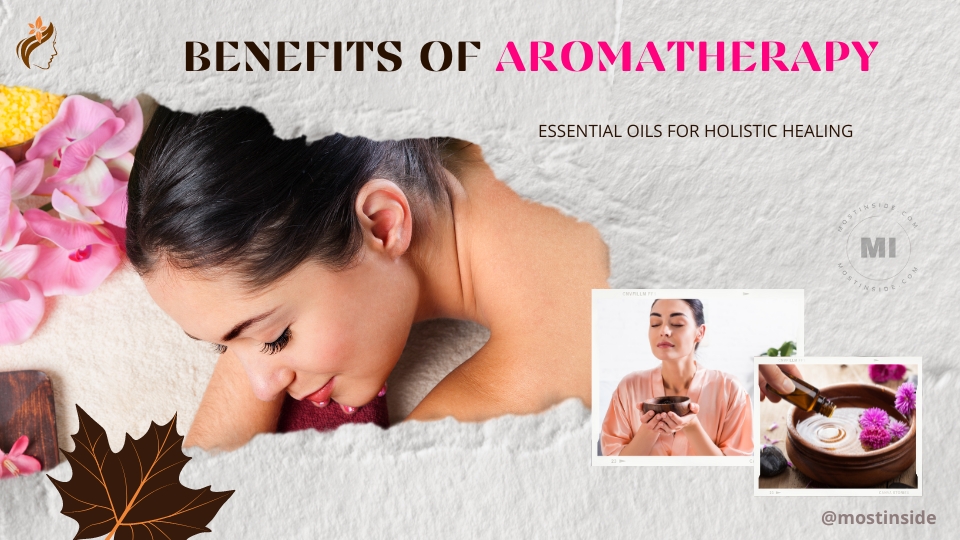Importance and Benefits of Aromatherapy
Alternative treatments and therapies such as aromatherapy, hydrotherapy is now being offered in therapeutic practices, including massage centres, spas, yoga studios and well-being for health centres, and even hospice settings and chiropractic offices. So, what exactly is the aromatherapy? Aromatherapy is an ancient practice that harnesses the therapeutic properties of aromatic plant extracts, has gained significant popularity in recent years. Beyond its pleasant fragrances, aromatherapy offers a multitude of benefits for the mind, body, and spirit.
This article delves into the importance of aromatherapy and highlights its remarkable benefits in promoting overall well-being.
Importance of Aromatherapy
Essential oils used for aromatherapy are crafted using dozens of different medicinal plants, their flowers, certain herbs, roots and trees that are grown all over the world having proven, powerful effects on improving physical, mental, emotional and spiritual well-being. For over 5,000 years, aromatherapy has been a trusted and proven practice amongst cultures all over the globe. Natural healers prefer aromatherapy for many antibacterial, analgesic, and anti-inflammatory effects of aromatic essential oils.
Essential oils have been traditionally used from thousands of years with an aim of improving a person’s overall health or mood which is the distinct importance of aromatherapy. According to The National Association for Holistic Aromatherapy (NAHA) “the therapeutic application of essential oils or the medicinal use of aromatic substances, the essential oils for holistic healing has a significant role in overall improved wellbeing of mankind.
A wide range of essential oils are there that are used in aromatherapy specially to have various degrees of antimicrobial activity that involve antiviral, insecticidal, nematocidal, antifungal, and antioxidant properties that are also included in the benefits section as well. Aromatherapy applications mostly include inhalation, massage, and topical applications.

Let’s have a brief look on the benefits of aromatherapy. Read on:
1. Enhancing Emotional Well-being
Aromatherapy has a profound impact on our emotions. Essential oils, the core elements of aromatherapy, possess unique scents that can stimulate specific responses in the brain. For instance, lavender oil is renowned for its calming properties, effectively reducing anxiety and promoting relaxation. By inhaling these soothing scents, aromatherapy can alleviate stress, uplift mood, and even help with conditions like depression and insomnia.
2. Boosting Physical Health
Apart from its emotional benefits, aromatherapy also contributes to physical well-being. Essential oils contain various compounds with antibacterial, antifungal, and antiviral properties. When used appropriately, they can support the immune system, helping to combat illnesses and infections. Furthermore, certain essential oils, such as eucalyptus and peppermint, are effective in relieving respiratory congestion and promoting clear breathing.
3. Alleviating Pain and Discomfort
Aromatherapy has been recognized for its ability to alleviate pain and discomfort. Essential oils like chamomile and peppermint possess analgesic properties, which can provide relief from headaches, muscle aches, and joint pains which is one of the best benefits of aromatherapy. Through massages or topical application, these oils can be absorbed into the skin, reducing inflammation and promoting relaxation in the affected areas.
4. Supporting Cognitive Function
The impact of aromatherapy extends to cognitive function as well. Some essential oils, such as rosemary and lemon, are known to enhance mental clarity, concentration, and memory. By diffusing these oils or using them in a personal inhaler, aromatherapy can improve focus and cognitive performance, making it particularly useful during study or work sessions.
5. Promoting Sleep and Relaxation

In today’s fast-paced world, achieving quality sleep and deep relaxation can be challenging. Aromatherapy comes to the rescue once again, offering natural solutions for sleep-related issues. Essential oils like chamomile, lavender, and ylang-ylang possess sedative properties that can induce a state of calmness, leading to better sleep quality and reduced insomnia. Aromatherapy can be experienced through diffusers, sprays, or added to bathwater, creating a tranquil environment for restful sleep.
6. Holistic Approach to Well-being
Aromatherapy embodies a holistic approach to well-being, addressing the interconnection between the mind, body, and spirit. By engaging the senses and promoting relaxation, it encourages overall balance and harmony within an individual. The therapeutic scents can have a profound effect on one’s mood, energy levels, and overall outlook on life, hence another benefit of aromatherapy.
Conclusion
The importance and benefits of aromatherapy are undeniable. From improving emotional well-being and physical health to alleviating pain, supporting cognitive function, and promoting relaxation, this ancient practice offers a plethora of advantages for individuals seeking a natural and holistic approach to wellness. By incorporating aromatherapy into daily routines, we can tap into the power of nature’s fragrances and enhance our overall quality of life.
Note : Remember, when engaging in aromatherapy, it’s essential to use high-quality essential oils and follow recommended guidelines to ensure safe and effective usage.
Recommended For You
Cost-Benefit Analysis of Fall Detection Devices for Senior Citizens
Priyadarshini Muduli
A full time passionate writer with imperishable determination to bring healthy, smart and pragmatic changes individually and socially. Concentrate especially on lifestyle, life and personal improvement, relationships, mental health and behavior, viral issues and literature based subjects.




